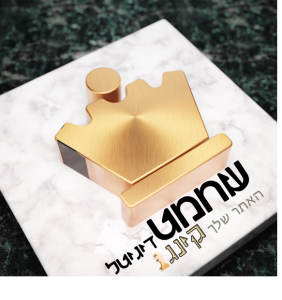Chaye Sara – THE TRAIT OF EQUANIMITY Hishtavut Hanefesh
THE TRAIT OF EQUANIMITY Hishtavut Hanefesh
Our Parasha opens with the following verse: “And Sarah was a hundred and twenty seven years old; these were the years of Sarah’s life.” (Bereishit 23:1). Having reported to us that Sarah lived for 127 years. The text then states again, “such was the span of Sarah’s life.” This repetition is an occasion for commentary; The Midrash explains this verse as follows:
“And Sara was a hundred…”.. “The Lord knows the days of the perfect, and their inheritance shall be forever” (Tehilim 37:18) – just as they are perfect, so are their years perfect. (Bereishit Rabba 58:1)
Rashi notes that all of Sarah’s years were for the good.
R. Yehuda Arye Leib of Gur, author of the Sefat Emet, notes that the temperament of Sarah was hishtavut hanefesh, “equanimity, inner calmness, mental and emotional stability and the maintenance of an even keel.”
The Midrash states: “Just as they are perfect, so are their years perfect.” And Rashi explains: “‘The years of Sarah’s life’ – they were all equally good.” This is the trait of equanimity mentioned in the book “Duties of the Heart.” (Duties of the Heart, The Service of God, chap. 5)
It is a great virtue that a person should stand firm in his perfection in all that passes over him. There is a trial for one who is poor, and a trial for one who is wealthy. Sarah, in her early years, lived through various difficult periods – through hunger, through being taken by Pharoh and Avimelekh. And in their later years, [Avraham and Sarah] had all that is good, but nothing changed in her, despite all these changes. …… Unlike ordinary mortals who undergo several changes every day, they never changed throughout their years. About them it says: “She will do him good and not evil all the days of her life” (Mishlei 31:12), despite all kinds of vicissitudes and trials, in poverty and in wealth (Sefat Emet, Chayyei Sara, 5656).
Sarah experienced all of life’s ups and downs. She left her homeland with Abraham. She was passed off as Abraham’s sister and went briefly into the harem of a king. She suffered through attempts at having a child and suffered because of the attidudeof her handmaiden Hagar towards her. Finally, she had a child in her old age, but she died before that child married, made a life for himself, and had his own children. Despite all these ups and downs, Sarah’s character remained unaffected. Her wisdom and righteousness abided through every moment of life. She had the quality of hishtavut hanefesh.
We find this trait of hishtavut elaborated upon in the ethical will of the Ba’al Shem Tov:
“I have set (shiviti) the Lord always before me” (Tehilim 16:8). Shiviti in the sense of hishtavut, “equanimity.” Whatever the occasion, it is all the same to him[ who posseses this quality], whether people are praising him or they are humiliating him, and so too in all matters. And similarly with everything he eats, whether he is eating delicacies, or he is eating other things, it is all the same to him, since the evil yetzer is entirely removed from him. Whatever happens to him, he says, “Surely this comes from Him, blessed be He, and if in Your eyes it is fitting, etc.” His every intention is for the sake of Heaven, but from his perspective, it makes no difference. This is a very high level.” (Tzava’at ha-Rivash,[ The Testament of Rabbi Israel Baal Shem Tov.])
In the Book of Micah we find a verse which sums up our essential duties: “Do justly, love mercy, walk humbly with thy God” (Micah 6:8). Commenting on the last verse, the Rabbis asked, “What does it mean to ‘walk humbly with thy God?’ ” It means, they said, “to escort the dead to the grave and lead the bride to the bridal chamber” (Sukkah 49b).
What unites these two examples is that they are peak emotional experiences. Accompanying one to the grave causes grief, while escorting a bride is a great joy. “To walk humbly” in each circumstance is to do so with an inner equanimity and stability, a recognition that life is filled with moments of great happiness and sadness
The Torah reveals very little about Sarah’s personality and emotions. It is Abraham who is grieved greatly grieved (21:9–12) when Sarah asks him to cast out Hagar and, and it is to Abraham that God constantly speaks. Sarah’s life is described in the context of Abraham’s needs and journeys. Yet the Rabbis turn this lacuna into a positive trait. Her equanimity needed little elaboration, and it made live all of her days l’tovah, for the good.

 שחמט דיגיטל
שחמט דיגיטל